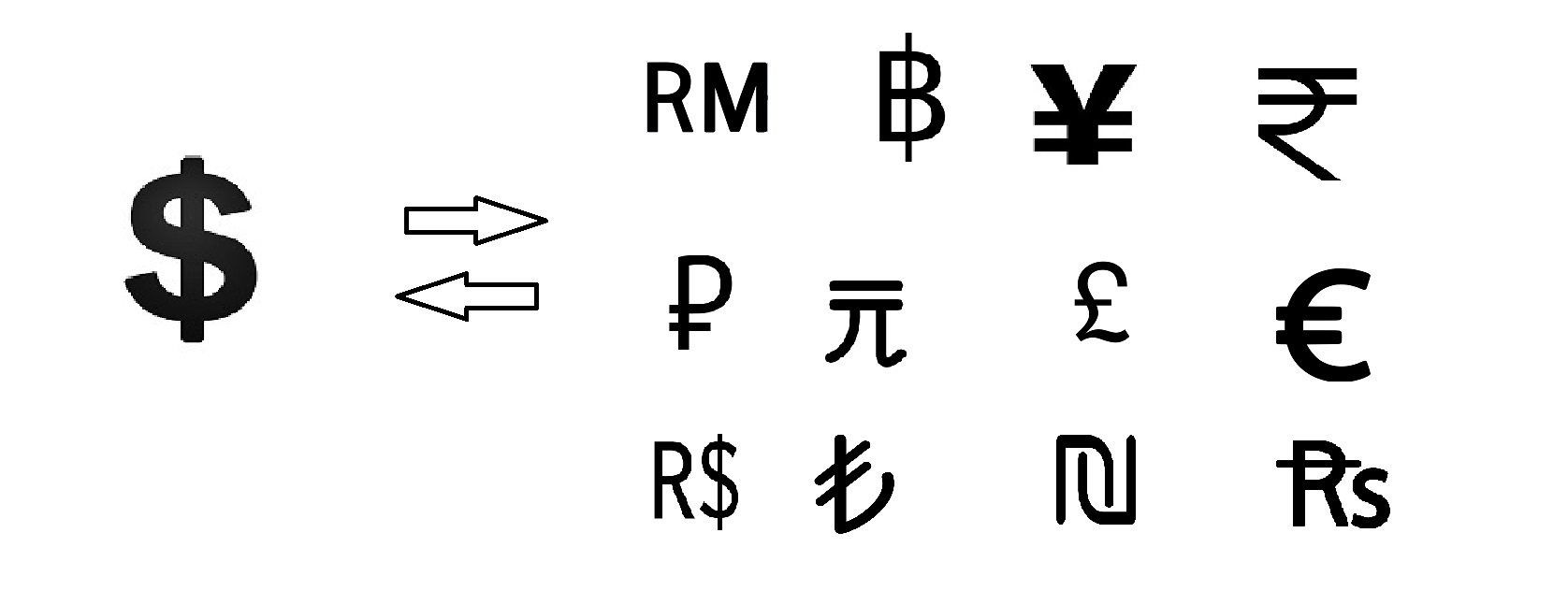
Australia Currency
Australia Currency is called the Australian Dollar which is made of polymer plastic notes of $5, $ 10, $ 20, $ 50 and $ 100. The coins are in 5, 10, 20 and 50 cent denominations with well as the $1 and $2 denominations. The exchange rate from the USD to AUD and it varies which is generally the USD is also about $0.9-$0.4 stronger than the AUD. It also means that $1.00 USD has an equivalent rate to approximately with $1.40 AUD on an average. Although, with the fluctuations in USD the currency exchange rates varies for Australian Dollar. The Australian dollar was introduced on 14 February 1966 (Earlier it was Australian Pound) and it replaced the pre-decimal Australian Pound which has the conversion rate of A$2 Per=1 Australian Pound.
In 2016 the Australian Dollar was the fifth most traded currency and also it was found in circulation.It also includes cash reserves which was held by the banking system and it has cash in circulation with other countries and also was held as a foreign exchange reserve. The Section 51(xii) of the Constitution of Australia and it gives the Commonwealth(federal) parliament with the power to legislate and the currency fetches a respect in terms of currency, coinage and the legal tender. Any of the countries currency is certainly influenced by the foreign exchange rates and it is known to be with Foreign Exchange traders with Australia’s relatively higher interest rate and also the stable economy with exposure to commodities sector.
What are the influences on AUD?
1. Interest Rates: The falling cash rates all across the world has decreased the AUD’s value as the foreign investors and withdraw the funds with chase higher returns with other countries.
2. Commodity Prices: The falling commodity with prices and it has negatively impacted with the AUD as a demand for the Australian dollars to buy our commodities fall.
3. Economy: The lower forecast growth has put downward pressure on the AUD as people move to the safe haven US Dollar.
The Credit cards or the plastic money which are commonly accepted in Australia is followed by the Diners Club Cards which is accepted in many places. The cards from American Express are also accepted here. The credit card issuers are known to charge anywhere from 1% to 3% with purchases made in other countries. Also, one has to contact the card issuer bank to know about the fees and currency denominations along with per swipe charges to be clear about the ATM’s charge.
Exchange rate policies:
The exchange rate policies in Australia is managed through a fixed exchange rate. The first peg was between the Australian and British Pounds which got reflected through historical ties as well as a view about stability of the Australian Dollar in terms of British Pound. The daily TWI valuation was changed in November 1976 with periodically adjusted valuation. On 12 December 1983 with the Australian labor Government led by the Prime Minister Bob Hawke and Treasurer Paul Keating who floated the Dollar.
So, one could say that AUD fetches good return and is quite a better option for exchange rates along with trading and spending either in Australia or anywhere else in the world.
Australian Currency Available Banknotes: $5, $10, $20, $50, $100.
Australian Currency Available Coins: 5c, 10c, 20c, 50c, $1, $2.
Australia Currency Name: Australian Dollar
Australia Currency Symbol: $
Australia Currency Code: AUD
Official User: Australia
Unofficial Users: Cambodia, Gambia, New Caledonia, Papua New Guinea, Solomon Islands, Tonga, Vanuatu & Zimbabwe
Australia Central Bank: Bank of Australia
Australia Currency Printer Agency: Reserve Bank of Australia
Foreign Exchange Market: The fifth most tradding currency in the world
Currency Exchange Stores in Sydney City
Store Name: Travelex
Address: Shop 15C Lower ground, 2/455 George St, Sydney NSW 2000
Store Name: Crown Currency Exchange (Westfield Sydney)
Address: Shop 5006B, Level 5, Cnr Pitt Street Mall &, Pitt St, NSW 2000
Store Name: Unimoni North Sydney
Address: Greenwood Plaza, Shop M57 B, 36 Blue St, North Sydney NSW 2060
Store Name: Lotus Foreign Exchange
Address: Shopp, 115 Pitt St, Sydney NSW 2000
Store Name: Travelex
Address: 330 George St, Sydney NSW 2000
Store Name: WeXchange Haymarket
Address: Entry is via, Shop 9, 405-411 Sussex St, Little Hay St, Haymarket NSW 2000
Store Name: Change Money | ChangeGroup
Address: 4 Alfred St, Sydney NSW 2000
Store Name: Travelex
Address: HSBC Centre, 570 George St, Sydney NSW 2000
Store Name: Travelex Currency Exchange
Address: 724-728 George St, Sydney NSW 2000
Store Name: Unimoni Market City
Address: Market City Shopping Centre, 9, r1/20 Hay St, Sydney NSW 2000